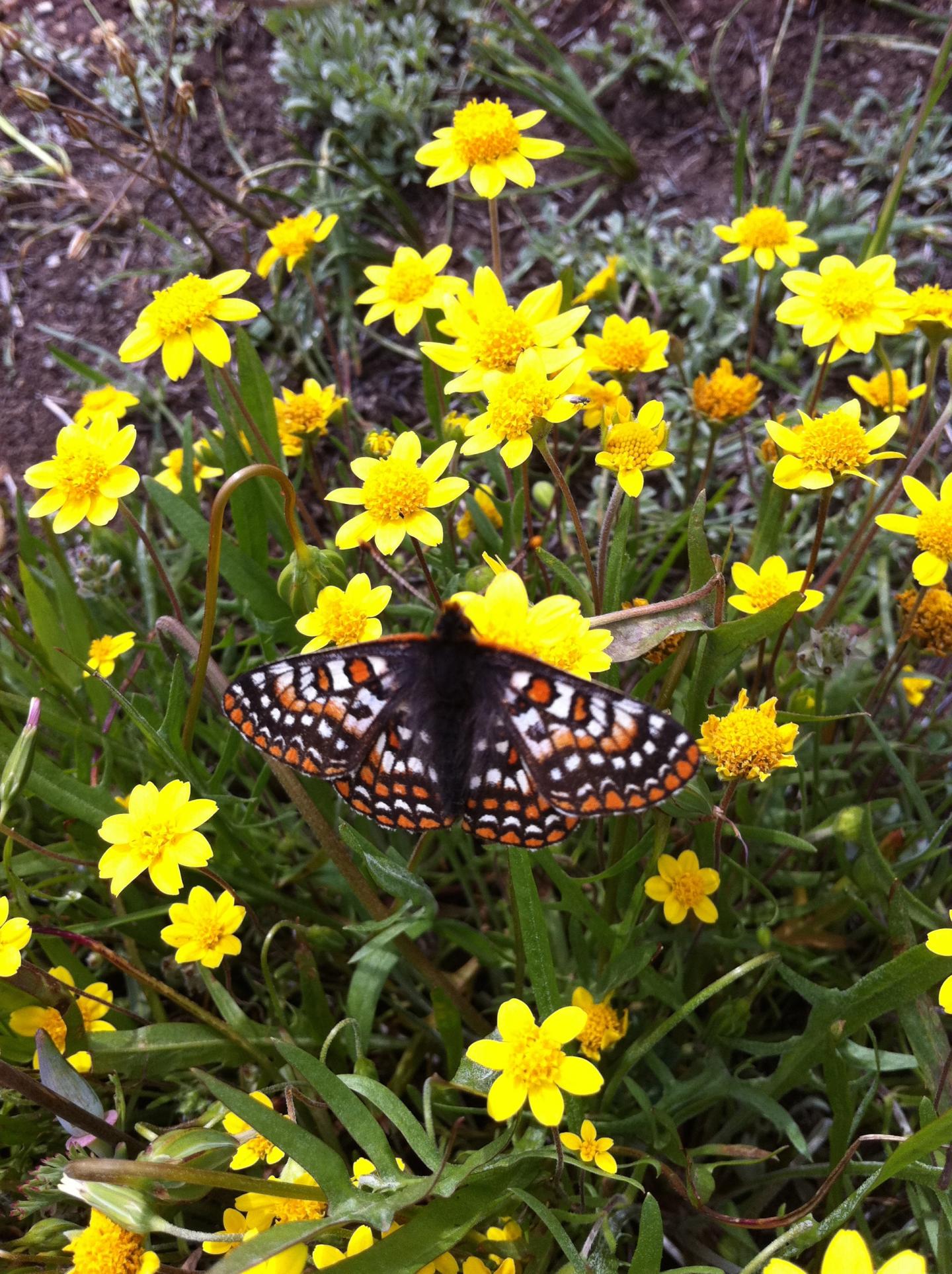
Credit: Amy Wolf
Scientists have documented many cases in which the timing of seasonal events, such as the flowering of plants or the emergence of insects, is changing as a result of climate change. Now researchers studying a grassland ecosystem in California have discovered that reducing the number of species in the system can also cause a significant shift in when the remaining species flower.
These kinds of changes are a concern because they can lead to mismatches in timing between species that depend on one another, such as plants that flower when their insect pollinators aren't around, or birds that hatch when their food isn't abundant. The new findings suggest that future changes in biological timing could be much bigger than would be expected from climate change alone.
"We found that losing species from an ecosystem made the remaining species flower earlier, and that's the same effect that climate change has. Adding one on top of the other could push apart the timing of previously synchronized events even more than expected," said Erika Zavaleta, professor of ecology and evolutionary biology at UC Santa Cruz.
Zavaleta and her colleagues conducted the study in a serpentine grassland, a rare ecosystem in California that occurs only on serpentine soils and includes many species that grow nowhere else. After reducing the number of species in experimental plots, they found that most of the remaining species flowered earlier than usual. The findings are published March 13 in the Proceedings of the National Academy of Sciences.
The observed changes in flowering time may be mediated by changes in the physical environment, such as soil temperature, soil moisture, or nitrogen availability, that result from reduced plant diversity. "It could be due to resources that are freed up by the loss of other species, but we have not yet been able to test that experimentally," Zavaleta said.
The research team included first author Amelia Wolf, who led the study as a postdoctoral researcher in Zavaleta's lab and is now affiliated with Columbia University and based at UC Davis.
"Advanced spring flowering is one of the most well-described and well-publicized phenomena linking global warming to plant communities," Wolf said. "The changes in flowering time we observed in these experiments are similar in magnitude to the effects induced by climate change."
The flowering shift attributable to the loss of two species in the study was about the same as the average change due to one decade of global warming in long-term observational datasets, she said. Warming experiments with plants in controlled settings have tended to underestimate the timing shifts observed in nature, and the new findings suggest that some of this difference could be the result of changes in biodiversity.
Zavaleta noted that humans are having major impacts on the composition and diversity of plant communities worldwide. Threats to plant biodiversity include habitat loss, invasive species, atmospheric pollution, and direct harvesting.
Previous work in Zavaleta's lab has documented how species losses can trigger cascading effects in an ecosystem, as when the loss of a plant species triggers the loss of an insect that pollinates it, or when the loss of an animal species triggers the loss of plants that depend on it for seed dispersal.
"We are losing species at such a fast rate these days, it raises the question of how these effects cascade through an ecosystem and affect the ecology and evolution of what's left," she said. "This study reveals a new pathway by which species loss can affect the dynamics of an ecosystem. It opens up the possibility that biological timing is going to respond in unexpected ways to the onslaught of different stresses that natural systems are experiencing, and the responses could be bigger than expected."
###
In addition to Zavaleta and Wolf, the research team included coauthor Paul Selmants at the U.S. Geological Survey's Western Geographic Science Center in Menlo Park, Calif. This research was funded by the National Science Foundation.
Media Contact
Tim Stephens
[email protected]
@ucsc
############
Story Source: Materials provided by Scienmag





